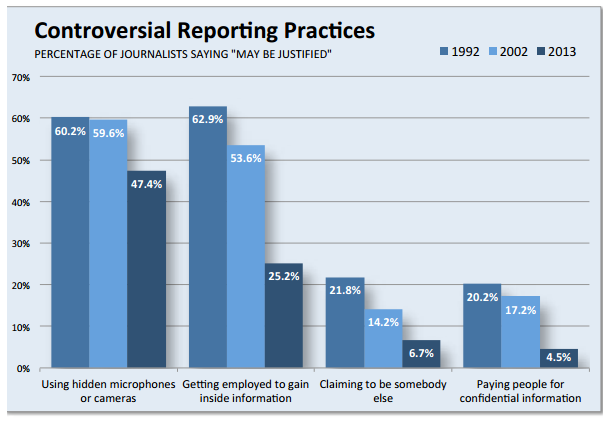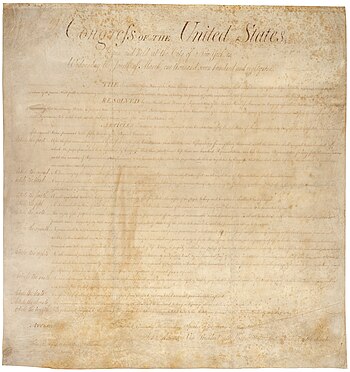Does the First Amendment protect “hate speech”?
Political Affiliation Type of College Gender
All Dem Rep Ind Public Private Female Male
Yes 39 39 44 40 38 43 31 51
No 44 41 39 44 44 44 49 38
DK 16 15 17 17 17 13 21 11
From FIRE (Foundation for Individual Rights in Education:
Although Caltech is private, California has a law applying the First Amendment to private, secular colleges and universities. California’s “Leonard Law” (California Education Code § 94367, named for its author, former California State Senator Bill Leonard) provides that “No private postsecondary educational institution shall make or enforce any rule subjecting any student to disciplinary sanctions solely on the basis of conduct that is speech or other communication that, when engaged in outside the campus or facility of a private postsecondary institution, is protected from governmental restriction by the First Amendment to the United States Constitution or Section 2 of Article 1 of the California Constitution.”
It was under the Leonard Law that a California court struck down Stanford University’s speech code in 1995. Corry v. Stanford, No. 740309 (Cal. Super. Ct. 1995). Some have criticized the Leonard Law itself as an interference with the right of a private university to define itself by a chosen set of values. After all, if a private university explicitly states that it places other values above the right to free expression, such that anyone deciding to attend or teach gives informed consent to giving up certain rights, FIRE believes that university is acting within its rights to place restrictions on speech that would otherwise be protected. (This is not to say that FIRE believes such restrictions are a good thing, just that in certain cases a private university does have the right to make them.) In this case, however, Caltech has made no such express disavowal of student and faculty speech rights, so it should be protecting them, Leonard Law or no Leonard Law. And for better or for worse, the Leonard Law is the law of California, and Caltech is acting in violation of it.
Hey, let's take a quiz from the Student Press Law Center, which gave valuable advice when ASUSF tried to "censor" the Foghorn several years ago.
Here is some of that advice:
In mid-April, San Francisco Foghorn talked with the Student Press Legal Center concerning the ASUSF decision to limit the Foghorn to biweekly publication both in an effort to improve its quality. On August 23, SPLC Executive Director Frank LeMonte, Esq., responded to the newspaper. The letter was copied to After stating that “we cannot offer you individualized legal advice about any particular matter, “he shared the following opinions based on his understanding of the facts presented.
• A government agency is prohibited from censoring indirectly as well as directly. While direct censorship is the most obvious and the most clearly illegal type such as confiscating a newspaper to prevent it from being distributed, the First Amendment does not stop there. In the past, state and federal courts have recognized that retaliatory or punitive actions short of literal censorship could still violate the First Amendment.
• Making budget decisions on the basis of displeasure with a student publication’s content not only is unlawful, but is an educationally unsound decision.
• The Supreme Court ruled that nothing short of a “substantial” disruption of the orderly operations of the school could justify censoring students or punishing them for the content of their speech.
• Although the University of San Francisco is a private institution, the university is governed by California’s “Leonard Law.” (Calif. Ed. Code Sec. 94367). Section 94367 is the legislature’s attempt to ensure that students at private universities have the full benefit of free-expression rights equivalent to those that the Constitution would guarantee at a public institution.
• Student government officers stand in the shoes of, and act on behalf of, college administrators when they are making budgetary decisions. While your university administration may have delegated some of its budgeting authority to the student government association, ultimate responsibility for the stewardship of money collected by the university must necessarily reside with the institution. The buck stops there.
• While we often hear “quality” cited as the justification for punitive action against a student publication, withholding funding, firing the adviser, removing the editor, “quality” is a perilously slippery rationale because it is so subjective. If simply making a mistake became a legitimate justification for the withdrawal of funding, then the First Amendment would cease to exist at campus publications, since it will always be possible for censors to find mistakes in a publication at any level.
• A college is of course free to withdraw financial support or to make personnel decisions for reasons unrelated to editorial content (for instance, if the college is going through a budget crisis forcing all organizations to absorb comparable reductions.
• Beyond the legal problems presented by a content-based reduction in funding for student media, there are obvious practical, ethical and educational issues that counsel strongly against this course of action. Campus budget committees do not micro-manage other student organizations, or hold them to subjective standards of perfection, when deciding their level of funding. They do not reduce the funding of the glee club because the choral director chose a disagreeable piece of music, reduce the funding for intramural football because the team drops too many passes, or reduce the funding of the marching band because a drummer fell out of step.
• Those serving on campus budget committees rarely are trained as journalists. Trained journalists know that even The New York Times publishes five or six corrections every single day. It is not realistic to hold any newsroom, even the best— funded and best-staffed, to a standard of errorless performance. If there is genuinely a concern for “quality control” in the publication, then the solution is to provide funding to hire additional copy editors — something I’m sure The Foghorn would welcome.
• While no budgeting system is perfect, it is our experience from many years of working with student media across the country that investing student government officials with discretionary control over the budget of news publications invariably invites needless conflict. Many successful alternative models exist, including a dedicated “student media fee” that is passed through student government with no discretion to reduce it. At other institutions, student media operates under a “contract” with student government that locks in a predictable rate of funding based on enrollment.
-->













